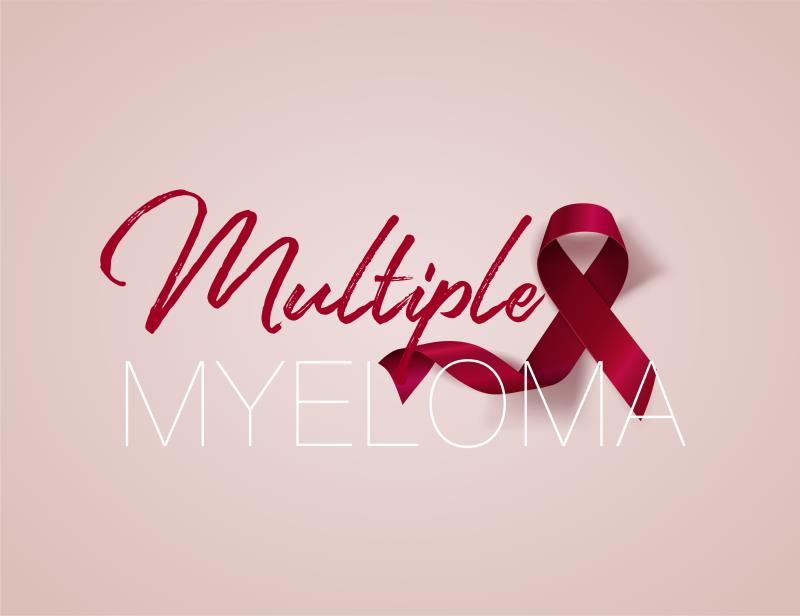
The phase II AMN001* trial conducted by the Asian Myeloma Network confirmed the efficacy of a pomalidomide plus dexamethasone regimen in Asian patients with relapsed/refractory multiple myeloma (RRMM), with a potential added benefit following the addition of cyclophosphamide.
“Our findings confirmed the efficacy of this combination … [and also] suggested that the addition of cyclophosphamide to the pomalidomide-dexamethasone combination was able to salvage the suboptimal response in the cohort with progressive disease or less than [minimal response (MR)] to the pomalidomide-dexamethasone combination alone,” said Dr Cinnie Yentia Soekojo from the National University Cancer Institute Singapore and co-authors.
A total of 136 Asian patients (median age 66 years, 47.1 percent female) with RRMM and ECOG performance status 0–2 who had failed treatment with lenalidomide and relapsed after bortezomib received oral pomalidomide (4 mg/day for 21 days Q4W) plus oral or intravenous (IV) dexamethasone (40 mg/week on days 1, 8, 15, and 22 in 28-day cycles; n=97). Patients who had less than MR after three cycles of pomalidomide-dexamethasone or disease progression within the first three cycles could add oral or IV cyclophosphamide (300 mg/m2 on days 1, 8, and 15) to their regimen (n=39). Patients were treated for a median seven cycles and were followed up for a median 358.5 days.
Patients who had cyclophosphamide added to their pomalidomide-dexamethasone regimen experienced an improved progression-free survival (PFS) compared with those on pomalidomide-dexamethasone alone (median 10.8 vs 9 months). [Blood Cancer J 2019;9:83]
The addition of cyclophosphamide was also beneficial for overall survival (OS) with a median 16.3-month OS in pomalidomide-dexamethasone-cyclophosphamide recipients compared with 15.2 months in pomalidomide-dexamethasone recipients.
Overall response rate was 51.8 percent and was numerically higher in pomalidomide-dexamethasone compared with pomalidomide-dexamethasone-cyclophosphamide recipients (56.3 percent vs 43.6 percent). Five patients experienced complete response (CR) or stringent CR, four and one in the pomalidomide-dexamethasone and pomalidomide-dexamethasone-cyclophosphamide groups, respectively, while partial response (PR) occurred in 36.6 and 33.3 percent of the respective groups.
The median duration of response was longer in pomalidomide-dexamethasone-cyclophosphamide than pomalidomide-dexamethasone recipients (median 15.9 vs 10.1 months).
Subgroup analyses showed that patients with PR or better showed greater improvements in PFS (median 15.8 months vs 6.87 months [stable disease or MR] or 1.6 months [disease progression]; p<0.0001), while age and number of prior treatments did not affect PFS outcomes.
A median PFS of 10.4 months was noted in patients with 17pdel or t(4;14) and 15.2 months in those with other genetic abnormalities who received pomalidomide-dexamethasone. This finding bodes well, said the researchers, “as patients with high-risk genetics typically do not respond as well to conventional treatment”.
The most common grade 3–4 adverse events (AEs) were neutropenia, thrombocytopenia, and anaemia which affected 49.3, 19.1, and 18.4 percent of patients, respectively, with 81.6, 33.3, and 42.4 percent of the cases, respectively, deemed treatment-related. Grade ≥3 sepsis affected 13.9 percent of patients and neutropenic fever, 10.2 percent. Almost 23 percent of patients discontinued treatment, and 50.7 and 22.1 percent had drug interruptions and AE-related dose reductions, respectively. Of the 36 patients who had grade 5 AEs leading to death, three were considered treatment-related. Venous thrombosis rates were low (three grade 3 events)
These results come on the heels of several studies demonstrating the efficacy of pomalidomide-dexamethasone in patients with RRMM. [Lancet Oncol 2013;14:1055-1066; Blood 2014;123:1826-1832] However, Asian patients represented only a minority of the participants in these studies, and as such, the efficacy and safety of this combination in Asians needed to be established, said the researchers.
“[I]n Asian countries in which bortezomib and/or lenalidomide therapies have increasingly become the standard of care in MM management during induction therapy and/or early relapse, this combination could be an appealing treatment option in RRMM patients,” they concluded.